Plant decor is popping up everywhere in the home and in all styles and sizes. Whether you’re a lover of herbal plants, you’re looking to add a fun home decor element, or you’re even wanting to purify your air, a low maintenance plant is the perfect addition to your kitchen.
There are many ways to incorporate a plant to your culinary space, regardless of how big or small your kitchen may be. Some ideas include:
- Place in a macrame plant hanger
- Add a geometric pot to your counter or kitchen island
- Hang from the ceiling in a vintage basket
- Add a potted plant to your open shelving
Experiment to find what option works best for your taste and kitchen space. If you lack counter space, a hanging plant may be your best bet.
When it’s time to choose the type of herbal plants or decorative plants, Kitchen Cabinet Kings has a helpful in-depth guide and visual to the 11 best plants for your kitchen.

It includes details on how much sunlight and water each plant needs, if you’re looking for a low maintenance option. Luckily, you won’t need a green thumb to keep most of these kitchen and herbal plants thriving!
Herbal Plants & Decorative Plants
ENGLISH IVY
The English ivy will grow lush long vines full of dark green leaves indoors just as easily as outdoors. The most important aspect of growing the English ivy indoors is light. It prefers bright filtered light, but it can survive in lower light conditions if necessary.
When watering the plant, check the soil first. Make sure it is dry to the touch before watering, and let the soil dry out on the top before watering it again.
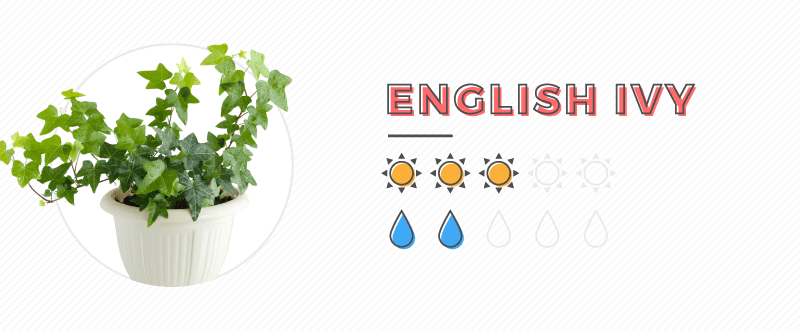
ALOE VERA
Aloe vera is one of the easiest plants to care for. In fact, they thrive when they’re left alone. Aloe vera plants can certainly grow in partial shade near a window or sliding glass door, but they do best with as much light as possible.
During the summer, water once every couple weeks when the soil dries out. Water even less in the winter.
WHITE JASMINE
White jasmine grows easily indoors, working well in a hanging basket or clay pot. They are known for their bright white fragrant blossoms that will fill your kitchen with rich smells.
During the spring and summer months, white jasmine will need as much as light as possible, but during the winter months it can tolerate less light. Keep the soil moist during the summer and let keep it dry in the winter months.

CHINESE EVERGREEN
The Chinese evergreen is a durable plant that will thrive with very little care. They thrive in medium to low light conditions and prefer moderate watering. Be sure not to overwater, as that will lead to root rot. Place it on an empty space on your counter and enjoy the added touch of green.
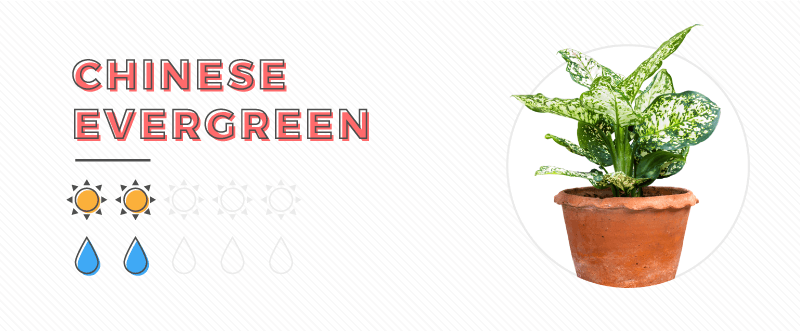
AFRICAN SPEAR
The African spear plant produces unique spear-like growth which can be braided similar to lucky bamboo. The African spear is light tolerant but prefers bright filtered light.
It’s also drought-tolerant, but will do best when watered once every two weeks. Put it in your windowsill over your sink and watch as this strange plant thrives.
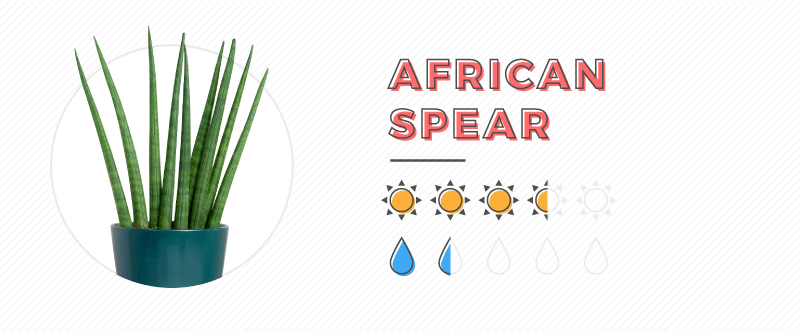
HEARTLEAF PHILODENDRON
The heartleaf philodendron works well as a hanging plant or table centerpiece. Its dark green heart-shaped leaves makes it a very elegant looking plant. It does best in medium light conditions but can survive low light conditions.
When watering, allow the top half of the soil to dry out first, then water lightly.
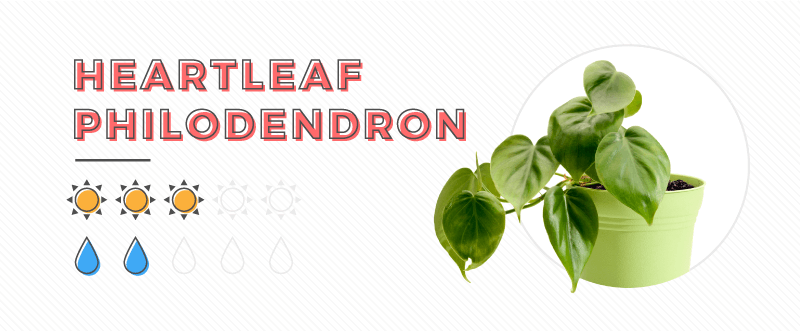
FIDDLE LEAF FIG
The fiddle leaf fig is a tough plant that can adapt to its environment. It’s a large plant that can grow to be six feet tall in the right conditions. Set it up in the corner of your kitchen or dining room and let it add some greenery to an otherwise empty space.
It prefers bright light by a sunny window but it can tolerate shady areas, too. Water only when the soil is dry to the touch. Water it thoroughly, allowing the water to run out of the drainage holes at the bottom, then let the soil dry out before watering again.
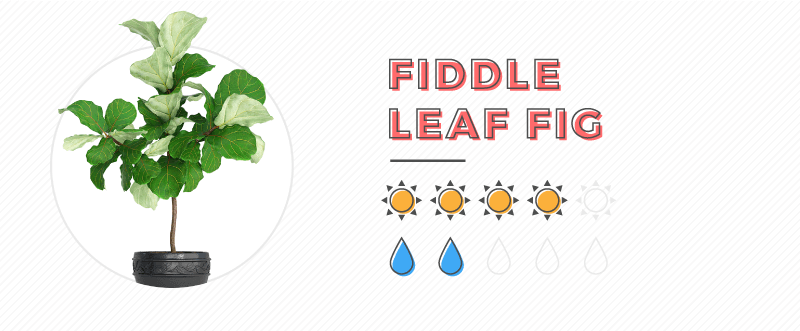
STRING OF PEARLS
The string of pearls succulent is a perennial vine that produces small sphere foliage. Hang it over your sink or in a bright area of your kitchen. It does best with bright light but it can survive with a lot of fluorescent lighting.
Water only when the soil dries out and then water thoroughly, allowing the water to soak through the entirety of the soil.
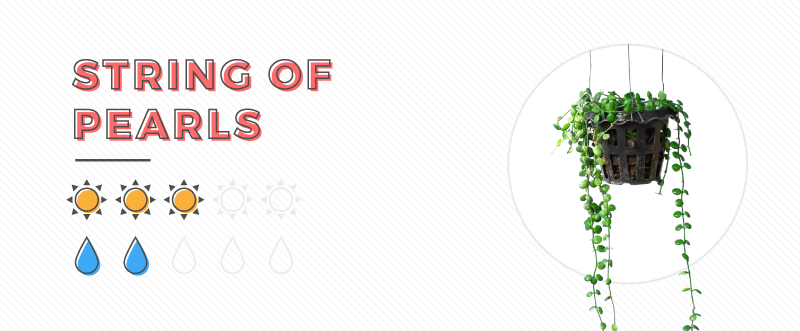
DEVIL’S IVY
Devil’s ivy, also known as golden pothos, is a fast growing vine that produces waxy heart-shaped foliage. It’s a highly drought-tolerant plant, but prefers being watered about once every one to two weeks.
When watering, let the soil soak completely until the water runs out of the drainage holes at the bottom of the pot. Devil’s ivy grows well in shady areas, with some filtered sunlight.
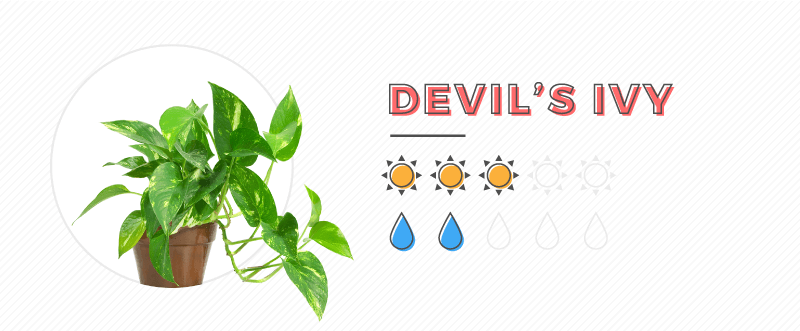
ZZ PLANT
The ZZ plant gets its name from its botanical name, Zamioculcas zamiifolia. This plant is virtually indestructible, preferring moderate indirect light but can tolerate extremely low levels of light.
This makes it perfect for a dark spot in your kitchen that could use a decorative touch. Less is more when it comes to watering the ZZ plant, it’s able to survive months without watering.
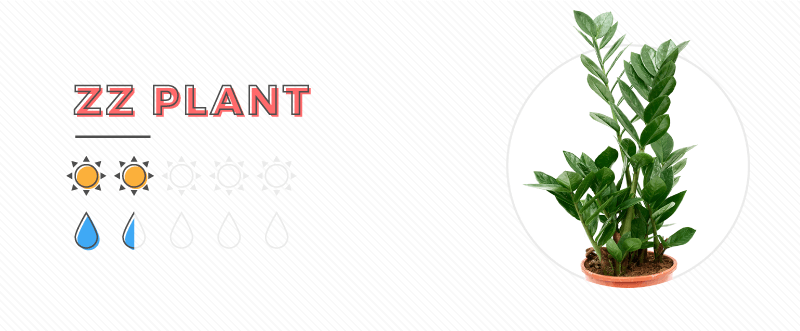
PEACE LILY
The peace lily is a longtime favorite of homeowners as it is an overall easy plant to care for and rewards its owners with bright white blossoms when healthy. It’s also on NASA’s list of Top Ten Household Air Cleaning Plants for its ability to break down toxic gases like formaldehyde and carbon monoxide.
The peace lily prefers medium, indirect light and should be placed about six to eight feet away from the closest window. Knowing when to water the peace lily is easy, just pay attention to when it starts to droop and then give it a drink.
Within hours, it will perk right back up. Place the peace lily on a counter, end table or as a floor plant in your kitchen and reap its aesthetic and air-purifying benefits.
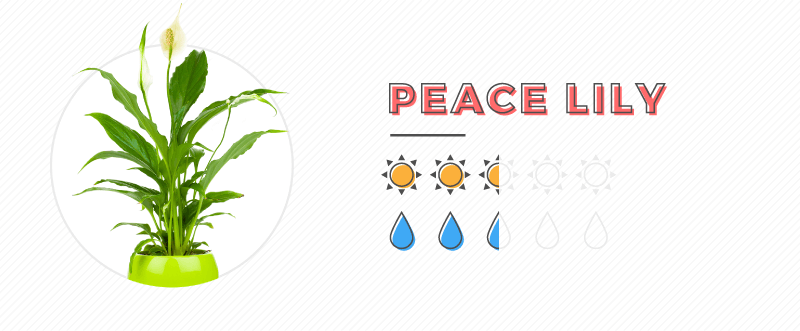
Pick a few of your favorite herbal plants & decorative plants from above based on the level of light in your kitchen and how often you’re available to water them, and stop by your local nursery to liven up your kitchen.
Thanks for reading all about Herbal Plants & Decorative Plants for Your Kitchen. Have a lovely day!


